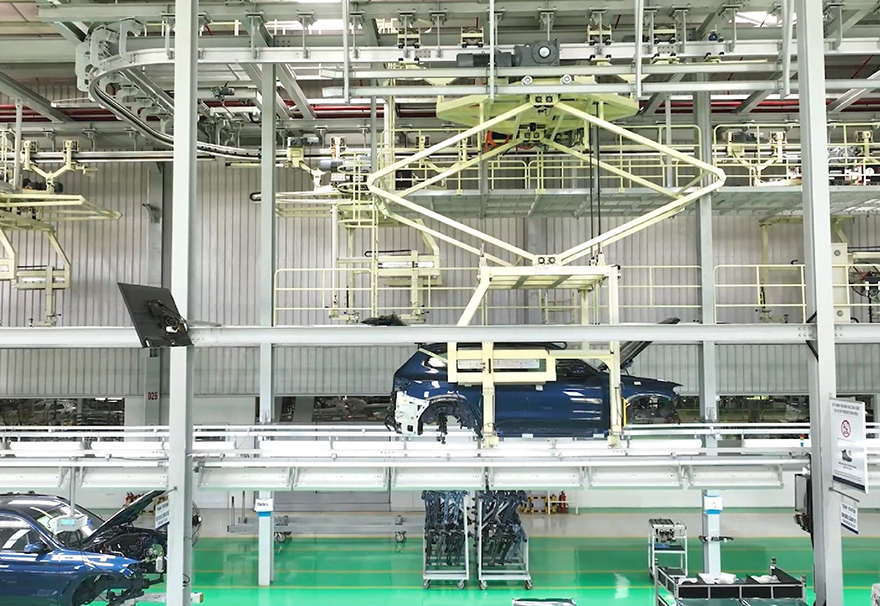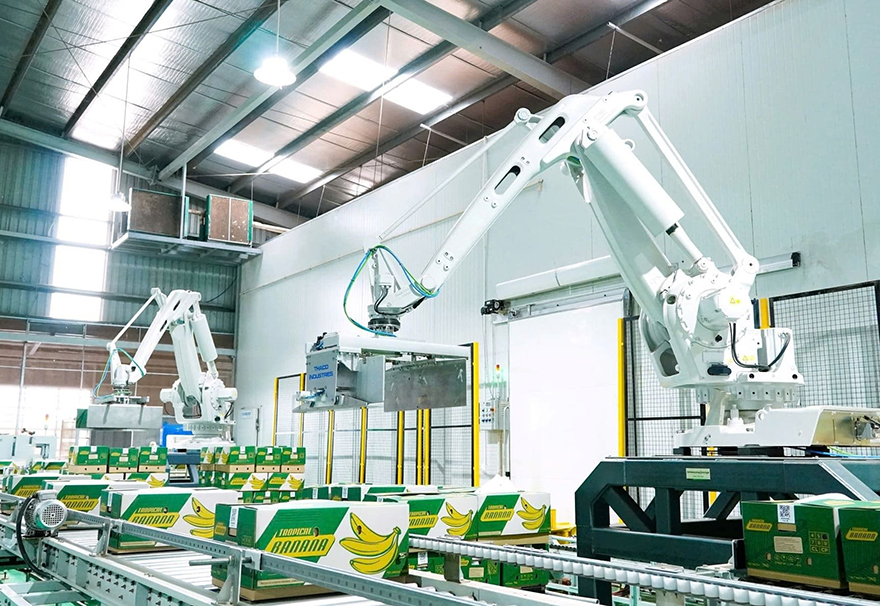thacoindustries
11 posts
Sep 09, 2025
3:29 AM

|
Industrial Automation Systems: Enhancing Efficiency in Modern Manufacturing
In today’s competitive industrial landscape, efficiency, precision, and consistency are critical for maintaining production quality and reducing operational costs. Industrial automation systems play a pivotal role in achieving these goals by integrating mechanical engineering, electronics, and software technologies to streamline manufacturing processes. These systems are essential in modern production facilities, warehouses, and assembly lines, enabling higher throughput and improved safety.

Xem Chi Tiet Bai Viet Tai: materials handling equipment
Understanding Industrial Automation Systems
Industrial automation systems encompass a wide range of technologies, including programmable logic controllers (PLCs), robotics, conveyor systems, automated storage and retrieval systems (AS/RS), sensors, and human-machine interfaces (HMIs). These systems are designed to monitor, control, and optimize industrial processes, reducing the reliance on manual labor while increasing accuracy and reliability.
Xem Tai: Efficiency in Every Move

Mechanical Engineering in Automation
Mechanical engineering is the foundation for designing durable and efficient automation systems. Engineers utilize advanced CAD modeling, finite element analysis, and dynamic simulations to ensure precise movement, load handling, and structural integrity of machinery. Proper mechanical design ensures that automated equipment can operate continuously, handle heavy or complex materials, and withstand demanding industrial environments.
Tham Khao: Automated Material Handling Equipment: Smart Solutions for Modern Manufacturing

Integration with Supporting Technologies
Successful industrial automation depends on collaboration with supporting industries. Electronics provide control circuits and sensors for real-time monitoring, software engineers develop intelligent control algorithms, and materials science contributes durable and lightweight components. This integration allows industrial automation systems to deliver optimized performance, real-time data analytics, and predictive maintenance capabilities.
Benefits of Automation
Implementing industrial automation systems offers numerous advantages. Automation increases production speed, reduces operational costs, and minimizes human error. It also enhances workplace safety by reducing manual handling of heavy or hazardous materials. Automated systems improve consistency, quality control, and inventory management, which are crucial in industries such as automotive, electronics, pharmaceuticals, and consumer goods manufacturing.
Sustainability and Energy Efficiency
Sustainability is increasingly important in industrial operations. Automation systems are designed to be energy-efficient, using smart drives, regenerative braking, and optimized processes to reduce energy consumption. Lightweight, recyclable materials and modular designs further support environmental goals, contributing to reduced carbon footprints and more sustainable production.
Global Applications and Future Trends
Industrial automation systems are widely used across global manufacturing hubs, enabling companies to remain competitive in fast-paced markets. Emerging trends include Industry 4.0 integration, IoT connectivity, AI-driven predictive maintenance, and collaborative robotics (cobots). These innovations allow manufacturers to enhance efficiency, adapt to market changes quickly, and achieve higher productivity with fewer resources.
Conclusion
Industrial automation systems are transforming the modern industrial landscape by combining mechanical engineering expertise, smart technologies, and supporting industries. They deliver increased efficiency, safety, and sustainability, ensuring that manufacturing operations can meet global standards and evolving market demands.
As industries continue to adopt digitalization and advanced automation, industrial automation systems will remain a cornerstone of innovation and competitiveness in the global manufacturing sector. With a sustainable development strategy, Thaco Industries continuously expands its production capacity and enhances service quality. The brand aims to deliver superior value while meeting the diverse needs of both domestic and international markets.
#materials_handling_equipment, #materialshandlingequipment, #Thaco_Industries, #ThacoIndustries, #Thaco_Industries
|